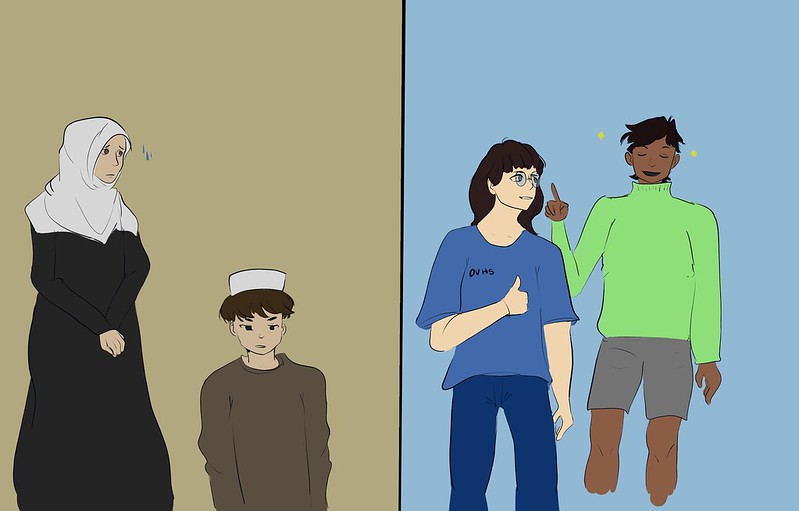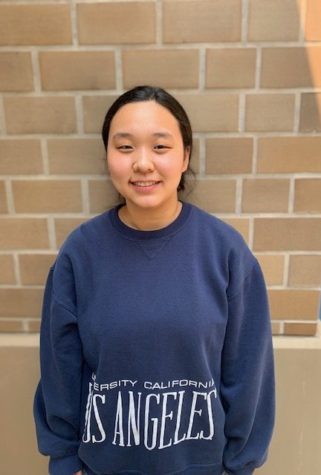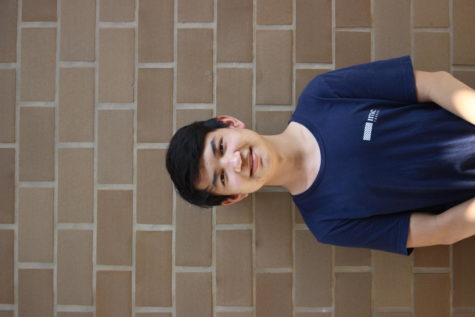Afghan-American students voice their thoughts on the Afghanistan pullout
The current situation in Afganistan is impacting everyone, including Afghan students in DV and the bay area.
January 27, 2022
After the U.S. military withdrawal from Afghanistan, the Taliban claimed its people and its government, creating international implications. Afghan-American students at Dougherty Valley High School share their thoughts on this event.
The conflict stems from 9/11, when the Taliban had provided sanctuary for the terrorist group al-Qaeda, which was responsible for the attacks. For 20 years, tensions between the U.S. and Taliban remained, ultimately prolonging the withdrawal of U.S. troops.
Many people have mixed views on the pullout. According to the Pew Research Center, 47% of U.S. troops felt that the pullout was “wrong,” primarily due to how fast they departed. However, a different article from the Pew Research Center states that 54% of U.S. adults felt that the pullout was justified.
Dougherty Valley High School junior Madina Agier expresses her stance on the pullout.
“As an American, I can see his perspective on what [Biden] is saying because then again, [it is the] Afghanistan’s government [responsibility] to control themselves,” said Agier.
On the other hand, Dougherty Valley senior Owais Ahli has mixed feelings about the situation.
“I mean, in a way, it was very sad [that] they didn’t give any warning. [The troops] could have given a heads up instead of just being okay by giving them like, with nothing, right no more like kind of protection,” said Ahli. “[But] the [Afghanistan] president, as soon as a hardship came he just left. He didn’t want to do any more because he was scared for his own life, but there’s also so many other people.”
Ahli also expresses how Afghanistan wasn’t always at its current state.
“Before [my parents] left, [Afghanistan] was described as a normal place. Kind of like what you think here, they had lots of different civilizations and the economy was good,” said Ahli. “So I feel like [the situation] slowly got worse [with] the rest pulling out. All of a sudden, Afghanistan deteriorated so much faster.”
The “Golden Age” in Afghanistan was a time when political and economic peace was celebrated during Mohammed Zahir Shah’s 40-year rule from 1933 to 1973, universities were founded, women were allowed in school and free elections and free press were present.
Under the Taliban, citizens lost many of their rights. The Taliban greatly restricted women’s access to education, denied their employment and placed restrictions on when they could leave their homes, only being allowed to leave with the presence of a male.
“We’re backtracking,” said Agier. “Women had rights, they could go to school and stuff and now that they [can’t] and … they have to be covered up. There’s this interview [where] some American interviewer was asking a member of the Taliban … how [they felt] about women playing a role in politics and they just laughed like it’s a joke to them.”
In addition to more widespread effects, Afghan students have felt personal effects within their family and friends.
“My grandmother is very in contact with people [in Afghanistan],” Ahli said. “They would tell us how the Taliban would go door to door, and go into houses raiding them without people knowing.”
Even Afghans not physically harmed by Taliban rule have felt the effects of the new government from inside their homes.
“I’m very thankful [that] none of my family members have been killed by this, but they are being affected,” Ahli said. “They’re cutting out electricity every night, so they get three hours of electricity the whole day. And thankfully, they have furniture again. They’re pretty wealthy so they have a good house, they have a good security system. But that still doesn’t stop the Taliban from messing with us.”
Having once seen a peaceful Afghanistan, Ahli’s grandmother feels disappointment and pain upon hearing news from the now war-torn nation.
“My grandmother, every day, she’s scrolling on Facebook, and she’s seeing the images that are being put out and all the bombings,” he said. “It hurts as a person, and I feel like even non-Afghans can see the suffering.”
Unfortunately, the effects of the pullout continued outside of Afghanistan as issues surrounding immigration severely impacted those seeking refuge.
“We had a family recently [that] arrived in L.A. … They have nothing, no phone, no clothes, just the kids … It sucks because they have to restart all over again,” Ahli said. “They were very wealthy in Afghanistan. They had a house, family and money; they had it all. But when they came here, they had nothing.”
In spite of all the painful effects, a Dougherty Valley High School junior, who chooses to be anonymous, discusses that the events of Afghanistan also had an unexpected outcome.
“Since my parents came here when they were very little I would say, they [have] become pretty Americanized,” she said. “I feel like [the pullout] just helped me understand who I am [a] little more [and] other people are understanding that too [from the] protests.”
In addition to the situation in Afghanistan sparking cultural awareness, several initiatives are starting up in the Bay Area. At the University of California, Berkeley, the Berkeley Law Afghanistan Project aims to protect those seeking refuge from the Taliban.
“I think spreading awareness, also to how much you can donate and how [the project is] donating for that, just the littlest things can make the biggest impact on our end,” Agier said.
Ahli also stressed the importance of how anyone could contribute to supporting the refugees.
“I feel like just … sharing your Instagram posts or donating a dollar can make a huge difference because you know, if 10 million people donate one dollar, $10 million. So it goes a long way and I feel like that’s very important,” Ahli said.
By taking action, people have realized the value of one’s culture.
“A lot of young people are coming to the realization of who they are and how they can have a voice and help, especially when it’s impacting your own people.”






